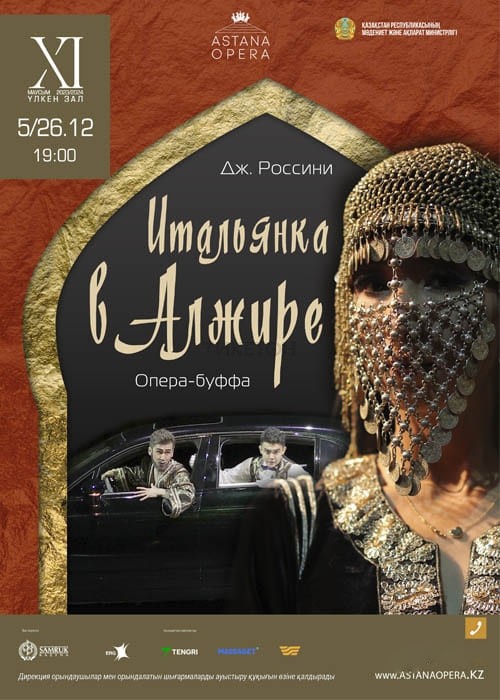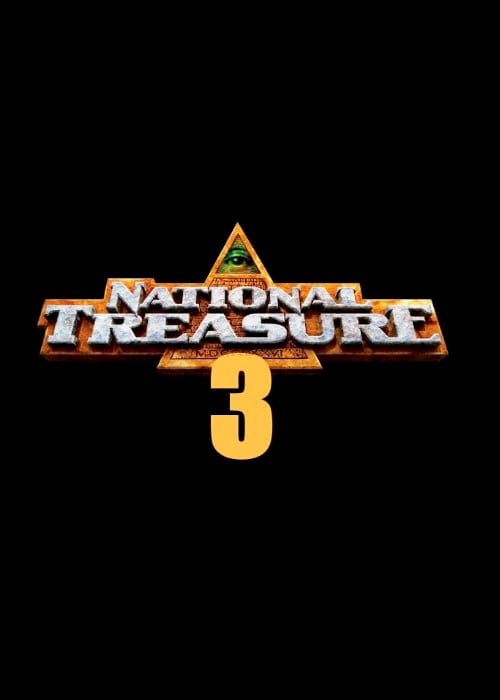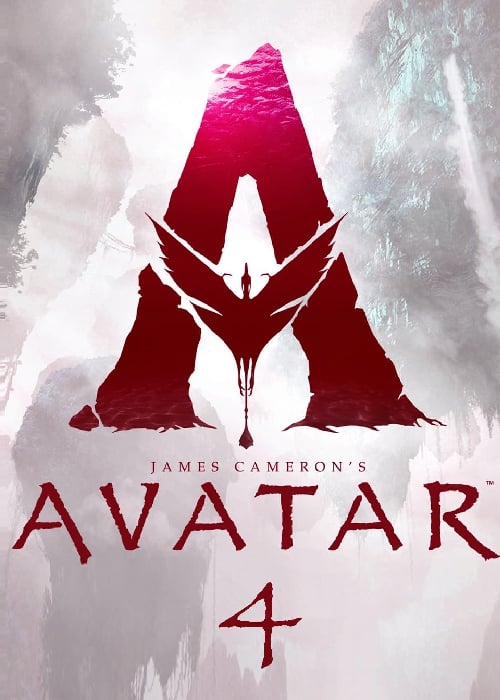L'italiana in Algeri

Gioachino Rossini
L'italiana in Algeri
Opera buffa in two acts
Performed in Italian
(with synchronized Kazakh and Russian supertitles)
Libretto by Angelo Anelli
Twenty-year-old Gioachino Rossini (1792-1868), who had become famous after the unprecedented success of his tenth opera, Tancredi, was offered a contract for a buffa opera by the impresario of the Teatro San Benedetto. The composer opted for L'italiana in Algeri. Its plot is linked with the Turkish legend of Roxelana. In 1520 the fifteen-year-old Italian was abducted by corsairs and taken to Sultan Suleiman’s harem and soon gained unrestricted power over him. The libretto of L'italiana in Algeri was written in 1808 by the historian and politician Angelo Anelli (1761-1820).
Rossini wrote L'italiana in Algeri in 23 days. It was performed at the Teatro San Benedetto in Venice on 22 May 1813, and it enchanted the audience right away. It was especially admired for the duet of Mustafà and Lindoro and the finale of Act 1, the comic terzetto Pappataci! and Isabella’s heroic aria about the motherland from Act 2. It caused an explosion of patriotic feelings among Italians, who dreamed of the unification and revival of their oppressed homeland.
L'italiana in Algeri – Rossini’s first major buffa opera, “the supreme achievement of the buffa genre” according to Stendhal. As is customary, both acts are crowned by massive ensembles, which also serve to repeatedly bring the protagonists together throughout the action. They frequently employ comedic sonorities and dance rhythms. Choral episodes, which were formerly uncommon for the buffa genre, now hold a prominent position. They adopt a wholly unusual, combative, and heroic character in the escape scene.
The overture has become well-known on the concert stage thanks to its inimitable humour, vibrancy and captivating succession of themes.
The Astana Opera’s production takes place in an imaginary Eastern country at the beginning of the 21st century.
LEAD ROLES AND PERFORMERS
Mustafà – Yerzhan SAIPOV (Debut) /
Shyngys RASYLKHAN, Laureate of the State Youth Prize “Daryn”
Isabella – Tatyana VITSINSKAYA (Debut) /
Saltanat MURATBEKOVA (Debut)
Lindoro – Alikhan ZEINOLLA /
Narul TOIKENOV
Elvira – Guldana ALDADOSSOVA /
Aizada KAPONOVA, Holder of the Order of Kurmet
Zulma – Aigerim AMANZHOLOVA /
Yelena GANZHA (Debut)
Taddeo – Azat MALIK, Laureate of the State Youth Prize “Daryn” /
Yerzhan SAIPOV
Haly – Dinmukhamed KOSHKINBAYEV /
Altynbek ABILDA, Laureate of the State Youth Prize “Daryn” (Debut)
OPERA SOLOISTS, ORCHESTRA AND CHORUS OF THE ASTANA OPERA HOUSE
PRODUCTION TEAM
Music Director and Conductor: Ruslan Baimurzin
Stage Director: Yerenbak Toikenov
Principal Chorus Master: Yerzhan Dautov, Honoured Worker of Kazakhstan
Vocal Coach and Consultant: Ala Simonishvili
Costume Designer: Manana Gunia
Lighting Designer: Karim Ramash
Video Projection Designer: Azamat Kuttyguzhin
Stage Managers: Altynganym Akhmetova, Ainur Khalelova
Opera Company Director: Azamat Zheltyrguzov, Honoured Worker of Kazakhstan
Technical Project Manager: Victor Carare
Share with Friends
You may also be interested in the following events:
 Белоснежка (2025)
Белоснежка (2025)
 Сокровище нации 3
Сокровище нации 3
 Аватар 4 (2029)
Аватар 4 (2029)

